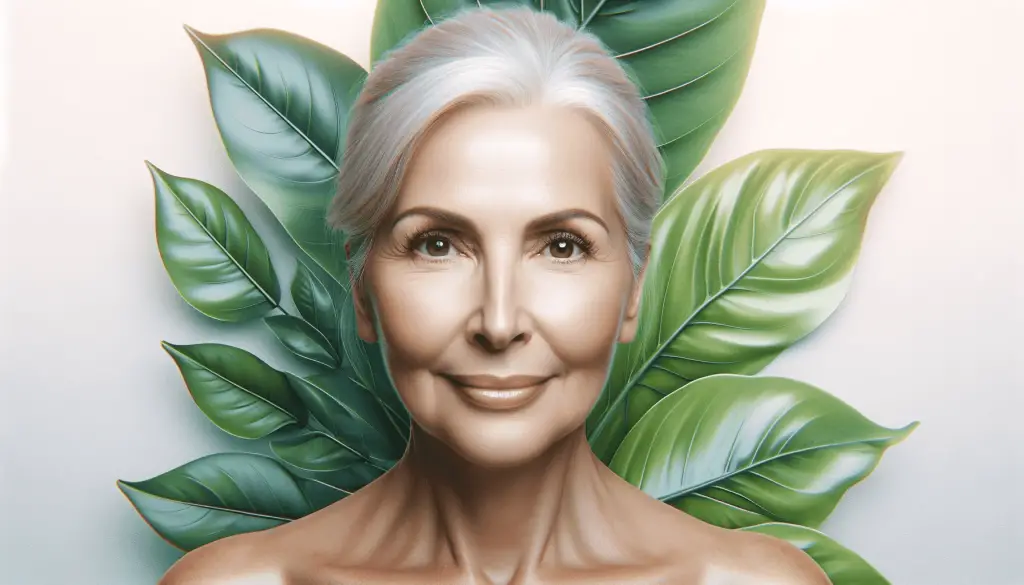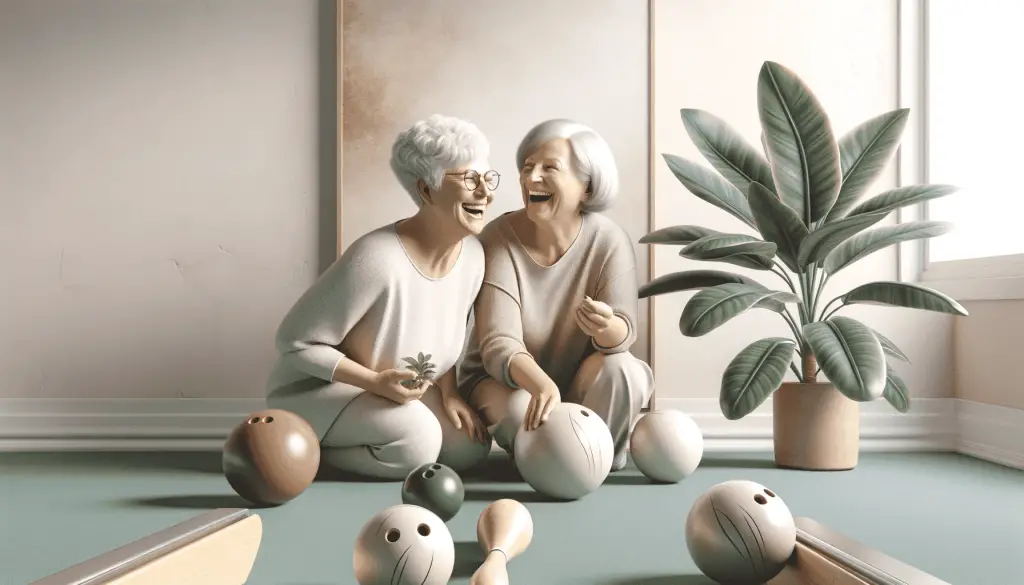Disclaimer: This article is for educational purposes only and is not intended as health or medical advice. Please consult with medical doctors and healthcare experts to determine the best approach for your individual needs.
Aging is an inevitable journey, one that each of us embarks upon from the moment we are born. However, the pace at which we travel through the years varies from person to person. Have you ever wondered why some individuals appear to defy the hands of time, flaunting a youthful glow well into their later years? The quest for how to slow aging is as ancient as human civilization itself, and modern science continues to seek ways through which we can decelerate this natural process.
In this article, we will explore the multifaceted approaches to slowing aging, from the genetic blueprint we are born with to the lifestyle choices we make every day.
Understanding Aging
So, what exactly is aging? It is a complex process characterized by a gradual decline in physiological functions, leading to increased vulnerability and decreased health. But beyond this somewhat clinical definition, aging is also about the changes we observe – the graying hair, the fine lines that emerge during expressions of joy, and the experiences that enrich our wisdom.
Recent studies have revealed much about the biology of aging. For example, studies released in 2023 by the National Institute on Aging emphasize the function of telomeres, the protective capped ends of chromosomes that shorten with aging. When these telomeres become critically short, cells age, die, or become more susceptible to damage, contributing to the aging process. Understanding these biological foundations sets the stage for exploring how we can influence them for healthier aging.
The Role of Genetics in Aging

Genetics certainly plays a crucial role in determining how quickly one ages. Have you ever noticed that some families seem to carry a fountain of youth in their genes, with members frequently living to a ripe old age with minimal health issues?
Researchers estimate that about 20-30% of an individual’s lifespan can be attributed to genetics, according to a report from Harvard Medical School. The role of genes in aging is complex, involving various genetic pathways that influence inflammation, DNA repair, and cellular health.
However, this does not mean our genetic destiny is fixed. Epigenetics, the study of how behaviors and environments can cause changes that affect the way genes work, is an emerging field that sheds light on how lifestyle can influence our genetic expression.
Lifestyle Factors That Affect Aging
Consider how our daily habits compound over the years, profoundly influencing our aging process. An inactive lifestyle, poor dietary choices, tobacco use, and excessive alcohol consumption can all accelerate aging at the cellular level.
Chronic stress is known to take a toll on the body, possibly hastening the aging process. A 2023 study published in the journal “Ageing Research Reviews” notes the impact of stress on accelerating cellular aging through pathways involving inflammation and oxidative stress.
Therefore, adapting our lifestyle to manage stress more effectively can be just as vital as the food we eat or the exercise we do in the grand scheme of aging.
Diet and Nutrition: Eating for Longevity
The adage “You are what you eat” is never truer than when discussing aging. Nutrient-rich diets, abundant in fruits, vegetables, whole grains, and lean proteins, can provide the body with the antioxidants, vitamins, and minerals necessary to combat oxidative stress, one of the culprits of aging.
Results from a systematic review and meta-analysis published in “Advances in Nutrition” in 2020 investigated the relationship between adherence to the Mediterranean diet and telomere length, a marker of aging, and found that diets like the Mediterranean diet, rich in healthy fats, fiber, and polyphenols, are associated with longer telomere length, hinting at their potential to slow aging at a cellular level.
Moreover, caloric restriction has also been associated with longevity. Cutting down on calories, without malnutrition, can trigger biological processes that may slow aging.
Research in “Cell Metabolism” 2023 shows that caloric restriction can improve metabolic health, reduce inflammation, and even extend lifespan in certain organisms. While human studies are challenging to conduct, emerging evidence suggests that strategic dietary choices could influence our aging trajectory.
The Importance of Regular Exercise
To age well, both physically and mentally, in a balanced, holistic way. Regular exercise should be a lifelong priority.
| Exercise Modality | Benefits |
| Cardiovascular Training | Endurance activities like running improve heart health and stamina |
| Resistance Training | Weight lifting and body weight exercises preserve muscle strength |
| Flexibility Training | Yoga and stretching help maintain joint mobility |
Incorporating different modalities can support aging well, both physically and mentally, in a balanced, holistic way. Regular exercise should be a lifelong priority for quality of life.
Skin Care Regimens to Combat Aging
The skin is often the first indicator of aging that we notice. It’s our largest organ and one that is constantly exposed to environmental stressors. A diligent skincare routine can help slow the visible signs of aging. This includes daily protection against ultraviolet (UV) radiation, which can accelerate skin aging by breaking down collagen and causing DNA damage.
The American Academy of Dermatology advises using sunscreen every day that is both broad-spectrum and has a high enough SPF. Additionally, topical applications of retinoids, antioxidants such as vitamin C, and peptides can support skin health and reduce the appearance of fine lines and wrinkles.
Regular exfoliation also helps remove dead skin cells and promote cell turnover. And while products are important, so are practices. Adequate sleep, hydration, and nutrition play critical roles in maintaining the skin’s elasticity and youthful appearance.
The Impact of Sleep on Aging
Sleep is not just a period of rest; it’s a state of intensive repair and rejuvenation for the body. During sleep, the body undergoes processes vital for brain health, such as the clearance of beta-amyloid plaque, a compound associated with Alzheimer’s disease.
A study from the “Journal of Clinical Sleep Medicine” highlights the restorative effects of sleep on cognitive function, suggesting that persistent sleep deprivation can result in features of accelerated brain aging.
Consistency in sleep patterns is equally significant. The circadian rhythm, our body’s natural clock, regulates countless biological processes, including hormone release and cellular repair. Disrupting these rhythms, as seen in shift workers, may contribute to faster aging and the development of age-related diseases. Therefore, prioritizing a regular sleep schedule is a cornerstone of any anti-aging strategy.
Hydration: The Elixir of Youth

Staying well-hydrated helps maintain skin moisture, which can reduce the appearance of fine lines and aid in cell function across the body. Beyond just skin-deep benefits, proper hydration facilitates digestion, circulation, and even brain function.
According to the Harvard T.H. Chan School of Public Health, fluid intake is critical for flushing out waste products, regulating body temperature, and keeping tissues in the ears, nose, and throat moist.
The amount of water required can vary, but the general recommendation of eight 8-ounce glasses per day is a reasonable target for most people. However, listening to one’s body and adjusting intake when necessary due to exercise, heat, or other factors is equally important.
Furthermore, hydrating foods like fruits and vegetables contribute to our overall fluid intake and offer additional nutrients that support the body’s anti-aging processes.
Supplements and Anti-Aging
While a balanced diet is the cornerstone of nutrition, supplements can sometimes provide additional support in the fight against aging. Antioxidant supplements such as vitamins C and E, coenzyme Q10, and resveratrol are popular for their potential to counteract oxidative stress, a key factor in aging and chronic disease development.
However, it’s crucial to note that supplements should not replace whole foods, and their use should be approached with caution and ideally under the guidance of a healthcare professional.
Emerging research also explores the viability of more novel supplements like nicotinamide riboside for promoting healthy aging at the cellular level. Yet, despite promising findings, we remain on the verge of understanding the full spectrum of how supplements can and should be used in anti-aging regimens.
Medical Advances in Anti-Aging
Science and medicine continually evolve, offering new frontiers in anti-aging. Treatments previously confined to the realms of science fiction, such as gene therapy and regenerative medicine using stem cells, are now subjects of intensive research and occasional clinical practice.
In particular, pharmaceutical interventions targeting aging pathways, or ‘analytics’, are under investigation, with some compounds showing the ability to selectively kill aging cells, thus potentially mitigating age-related diseases.
These medical interventions are not without their complexities and ethical considerations, but they signify our increasing ability to influence the aging process. For those curious about the potential of science to preserve youth, staying informed on these advancements is both exciting and essential.
Building and Maintaining Healthy Relationships

Humans are inherently social beings, and our relationships can have profound impacts on our health and longevity. Healthy relationships provide emotional support, help buffer against stress, and can even affect our physical well-being. Social connectedness is so vital that researchers compare the health risks of loneliness to those of smoking or obesity.
Studies done in “Psychology and Aging” found that emotional support from social relationships was associated with reduced mortality risk, suggesting that fostering strong personal bonds can be just as important as diet and exercise for aging well.
Investing time and effort into maintaining friendships, nurturing family ties, and participating in community activities can enrich life’s journey and contribute to a longer life. As we grow older, these connections only grow in significance, providing companionship, love, and care, which are key ingredients for a fulfilled life.
Final Thoughts
Although no one can halt time’s march, the rich tapestry of strategies we’ve explored can potentially slow the progression of aging and enhance the quality of our lives as we accumulate years. Aging gracefully isn’t about turning back the clock; it’s about living our best life at every stage, with health, happiness, and wisdom in abundance.
Remember, the journey of aging is a personal one, and what works for one person may not work for another. It’s essential to find the right balance of habits and routines that resonate with your body’s needs and life’s demands.
Seeking a harmonious blend of scientifically backed practices and an individualized approach will not only empower you to face your later years with confidence but will also make the process of getting there a more enjoyable and enriching one.
Frequently Asked Questions (FAQs)
No, a healthy lifestyle cannot completely negate the effects of genetics on aging. While lifestyle choices have a significant impact on health and longevity, they can’t alter the inherent genetic predispositions individuals may have toward certain aging-related conditions. However, lifestyle changes can mitigate some of the potential negative effects.
It’s challenging to pinpoint a single most crucial factor, as aging is multifaceted. However, many experts agree that a combination of a nutritious diet, regular physical activity, sufficient sleep, stress management, and avoiding harmful habits has a powerful collective impact on slowing down the aging process.
The effectiveness of anti-aging creams and serums varies depending on the product’s active ingredients and the individual’s skin type and concerns. While some products can help improve the appearance of the skin and reduce signs of aging, they should be seen as a supplement to, not a replacement for, a healthy lifestyle and skincare routine. It’s always a good idea to consult with a dermatologist for personalized skin care advice.





